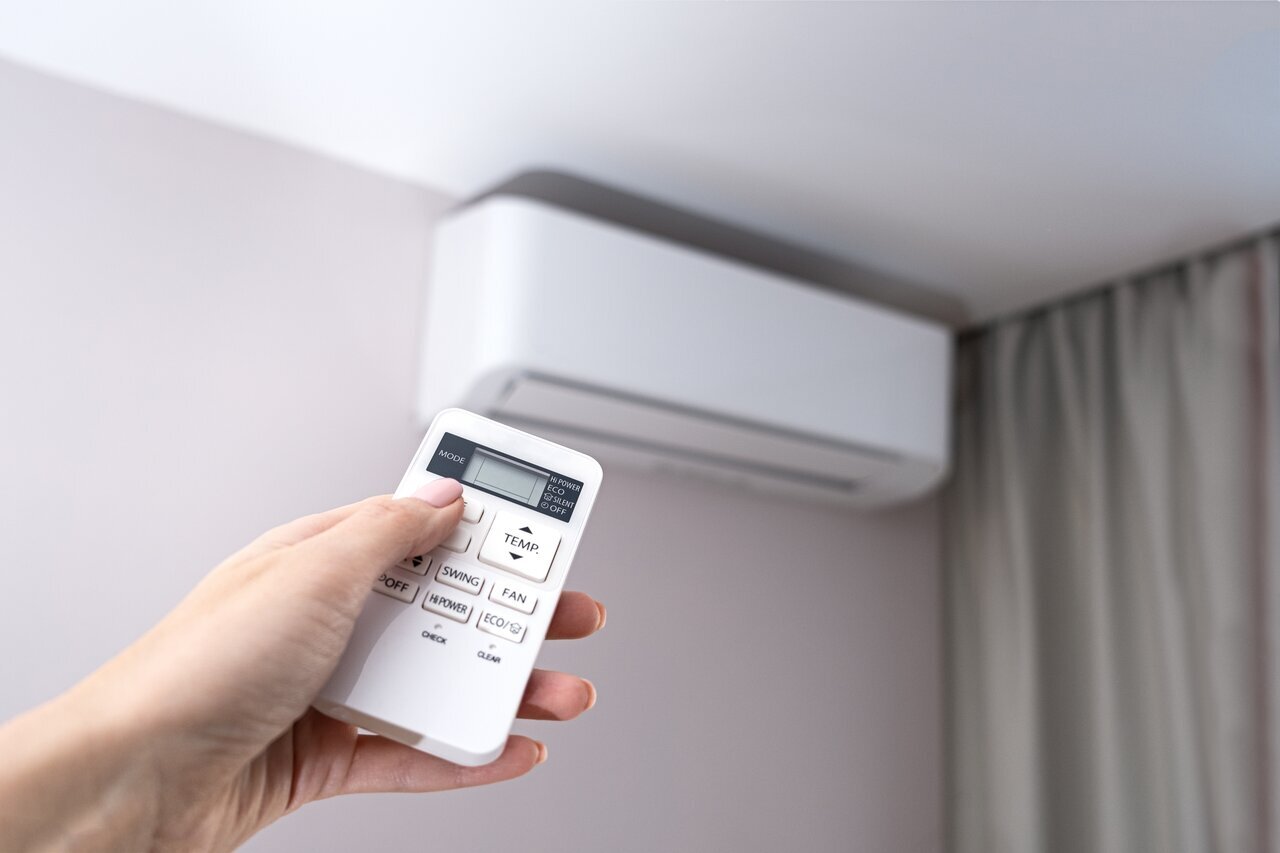When to Teach Your Kids About Electrical Safety
Electricity has become an integral part of our modern lives, powering our homes, gadgets, and appliances. Electricity is everywhere in our homes and in our lives. While it offers countless conveniences, it’s important to recognize that electricity can pose serious risks, especially to curious and unsuspecting children.
And kids are the most curious creatures on the planet, and they want to know everything. Sometimes that curiosity can get them into dangerous situations. One of the most dangerous situations is with electricity. Kids don’t always understand the dangers posed by electricity. As adults, it’s our responsibility to safeguard them from potential dangers and impart knowledge that empowers them to make safe choices.
So, parents and caregivers! Are you ready to dive into an electrifying topic that concerns the safety of your little ones? Morris Air & Electric is here to shed some light on the dangers of electricity when it comes to kids, the vital importance of introducing electrical safety to them, and provide you with some handy tips on how to teach your children about staying safe around electricity.
So buckle up, and let’s embark on this enlightening journey together!
What are the Dangers of Electricity to Kids?
Electricity is a powerful force that can be very dangerous if not used properly. Kids are especially at risk because they’re still growing and developing, and their bodies are less able to handle the problems that come from electricity. Here are some of the most common dangers of electricity to children:
- Electric Shock: Electricity is a powerful force that can be dangerous in the wrong hands. Kids may not realize the danger they’re in when they touch something that is electrified. They could receive an electric shock or burn themselves on live wires or outlets.
- Burns: Electricity can cause burns if your child comes into contact with it. In order to prevent this from happening, be sure that all electrical sockets are covered and that any appliances are turned off whenever possible.
- Electrical Fires: Faulty wiring, overloaded circuits, or misuse of electrical devices can lead to electrical fires. Kids may unintentionally contribute to these hazards by playing with matches, leaving flammable materials near outlets or appliances, or mishandling electrical cords.
- Strangulation: Electrical cords can pose a strangulation hazard for young children. They may inadvertently wrap cords around their necks or get tangled in cords attached to heavy appliances, leading to serious injury or suffocation.
- Falling Objects: Children who pull on electrical cords connected to appliances or climb on furniture to reach electrical outlets may inadvertently knock down objects, causing injuries from falling items.
The Importance of Introducing Electrical Safety to Your Kids
Electrical safety is one of the most important things you can teach your children. It’s a skill that will save their lives, protect them from injury, and help them to avoid accidents. Here’s why it’s crucial to prioritize electrical safety education for your children:
- Prevention of Accidents: Electrical safety is important for our kids, especially because they don’t know the risks and dangers of electricity. We can prevent accidents from happening by teaching them about electrical safety at home. It’s also important to teach them about the dangers of playing with electrical sockets and wires.
- Awareness of Potential Hazards: Teaching your kids about electrical safety will help them be more aware of potential hazards in the future. Electricity is everywhere, so it’s important that your kids are taught how to handle it safely so they don’t get hurt or cause damage in an accident.
- Responsible Behavior: Kids need to learn that being responsible for their own safety is important. They should know that if they have a question about electrical safety, they should ask an adult for help—and that includes you! You can empower your kids by showing them the proper way to handle electrical devices and empowering them to do so safely on their own when needed.
- Empowerment and Confidence: Teaching your kids how to be safe around electricity will also teach them how to be confident in other areas of their lives. This includes things like handling difficult situations without panicking or being afraid and knowing when it’s okay to ask for help when they don’t know what else to do.
- Lifelong Skills: The knowledge and skills acquired through electrical safety education are lifelong assets. By teaching your children about electrical safety, you equip them with fundamental skills they can carry into adulthood. Whether they’re living independently, working with electrical equipment, or managing their own households in the future, the understanding of electrical safety will serve them well.
- Building Trust and Open Communication: Children learn by example—and if they see their parents caring about their own well-being, they’re much more likely to care about their own. If they see their parents take measures to make sure they’re safe when using electricity, they’ll be more likely to do the same themselves.
How to Teach Your Children About Electrical Safety?
The world is full of danger, but the home is perhaps one of the most dangerous places your child can be. When you think about it, the home is a series of electrical appliances and tools that are all connected by wires. This means that if your child comes into contact with any of these wires while they’re still live, they could be electrocuted.
Electricity might not seem like something to worry about regarding kids and safety, but it can be hazardous if handled improperly.
So how do you teach your children about electrical safety? Here are several ways to teach your children about electrical safety:
- Start with Age-Appropriate Discussions: The conversations you have with your child will depend on the age of your child. For example, when you’re talking with a preschooler, you might want to focus on how electricity works and what happens when power is used improperly. As kids get older and start paying more attention, you can talk about how to avoid dangerous situations like plugging in appliances near water or leaving extension cords out where pets can chew on them.
- Explore Everyday Situations: Another way to help your children learn about electrical safety is by discussing real-life situations they might encounter when they are older. For example, if you have an appliance like a refrigerator or stovetop that uses electricity, ask them what they would do if they saw something wrong with it. Then discuss what they should do instead of using these appliances until they can be repaired properly (for example: using another appliance instead).
Consider talking about other common household appliances in terms of how they work and what they do rather than just telling them not to touch them.
Explain that electricity is everywhere around us and is not always dangerous. For example, if your child asks why their toy lights up when they press on it, tell them it uses electricity from batteries or wires inside the toy. The same goes for other devices like televisions and computers: explain how these work so that kids understand how electricity flows through devices around them.
- Demonstrate Safe Practices: If your child is old enough to understand, try this approach:
- Show them how to safely unplug a plug from the wall by using both hands and taking it straight out.
- Show them how to safely plug in a device by using one hand for each task (one hand for holding the cord and one for plugging in).
- Demonstrate what it looks like when something isn’t safe—like if they were to touch a stove before turning it off or putting their fingers into an outlet while something is plugged in.
- Identify and Avoid Hazards: Once your children have learned how to use fuses and plugs, they’ll need to know which ones are safe and which ones aren’t. You can show them which devices have fuses in them or which ones have sockets that will allow them to plug something into them (like lamps). This will help prevent any accidents from happening later on down the line!
- Conduct Safety Drills: You can help your children understand better about electrical safety by conducting safety drills with them. The most common type of electrical safety drill is one where you turn off all the lights in the house and have your children turn them back on again using flashlights instead of turning switches on and off. This will help them understand what happens when there’s no electricity in your home and how important it is for everyone to stay safe when this happens!
- Discuss Power Line Safety: This is one of the most important things to consider when dealing with electrical safety. If there’s a downed power line in your area, it can be very dangerous for you or your kids to walk through it, even if it looks like it’s been cut off by emergency responders or utility workers. The best thing to do is stay away from it entirely until emergency personnel have cleared the area and removed any potential hazards.
- Utilize Resources and Tools: Utilize age-appropriate resources such as books, videos, or online educational materials that teach electrical safety in a fun and interactive manner. These resources can help reinforce the concepts you discuss and make learning about electrical safety more engaging for your children.
- Reinforce Regularly: Regularly reinforce the importance of electrical safety through reminders and discussions. Make it a part of your daily routine to emphasize safe practices and answer any questions your children may have. Consistency is key in helping them internalize and apply what they’ve learned.
What to Include in Electrical Safety Guide for Kids?
The electrical safety guide for Kids is a document that helps children understand the dangers of electricity and how to prevent them. It is an essential part of any child’s education on electricity and should be distributed widely to every school and family.
It should include information about:
- Introduction to electricity and how it powers our homes and appliances.
- Understanding the dangers of electricity, such as shocks, burns, and fires.
- Safety around outlets, including never inserting objects other than plugs.
- Proper handling of electrical cords, gripping the plug instead of pulling the cord.
- Safe use of electrical appliances read instructions, and turn them off when not used.
- Power line safety, staying away from high-voltage areas, and reporting fallen lines.
- Fire safety procedures include how to respond and seek help in an electrical fire.
- Reporting any electrical hazards, such as exposed wires or damaged appliances.
- Outdoor electrical safety, avoiding power lines and utility equipment when playing outside.
- The importance of adult supervision for electrical repairs or unfamiliar situations.
- Practice safety drills for emergencies, knowing how to exit the house safely.
- Additional tips specific to your household or region, like unplugging electronics during storms.
Some General Electrical Safety Tips for Kids
Electric power is an ever-present force in our world. It drives lights and heaters, powers computers, and makes the world go round. But when kids are involved, things can get a little more complicated—especially when they’re playing with electricity.
To help keep your kids safe and healthy while they get their hands on the juice, we’ve rounded up some general electrical safety tips.
Here are some general tips for electrical safety that you can use at home:
- Don’t play with power tools or extension cords.
- Never leave anything plugged in when you’re not around.
- Never touch an electrical outlet or cord with wet hands.
- Only insert plugs into outlets, and avoid putting objects other than plugs into them.
- Always ensure your outlets are wired correctly, and the cords are in good condition before using them.
- If you see any exposed wires or outlets that look unsafe, don’t touch them! Report them to a parent or other adult immediately.
- Keep electrical cords away from water and ensure they are not frayed or damaged.
- If you see exposed wires, inform an adult immediately.
- Avoid climbing or touching power lines and report any fallen or damaged lines.
- Never put metal objects into electrical appliances or outlets.
- Turn off and unplug appliances when not in use.
- Use caution when using electrical appliances near flammable materials.
- Be careful not to pull on electrical cords to unplug them; grip the plug instead.
- Do not fly kites or climb trees near power lines.
- If you notice sparks or smoke coming from an appliance, unplug it and inform an adult.
- Follow fire safety rules and know how to respond in case of an electrical fire.
- Keep away from utility equipment and electrical boxes when playing outside.
Call Morris Air & Electric For All Your Electrical Panel Upgrade Needs in Orange County, CA!
We know that you don’t have time for electrical panel upgrades if you’re trying to get all the work done on your house and make it look like a million bucks. But if you’re going to be doing any work on the inside of your house, you’re going to need an upgraded electrical panel. Not just because it’s safer and more reliable but also because it will improve Electrical Safety at Home and increase the power capacity of your home or business.
We know how important it is to have a reliable and safe system in your home or business, which is why Morris Air & Electric offers professional panel upgrade services throughout Orange County and the rest of Southern California. We can handle everything from full-house Electrical Panel upgrades (including replacing old wires with new ones) to just replacing one outlet or switch. No matter what situation you’re facing, we’ll be there with our years of experience and expertise at hand!
We can help you solve your Electrical Panel Problems, including:
- Overloading the system (causing issues with your electrical panels)
- Improper wiring (causing fires or electrical shock)
- Outdated panels (not keeping up with current building codes)
- Outdated wiring (not keeping up with current building codes)
- And many more…
We are fully licensed and insured Orange County electricians who specialize in electrical panel upgrades and new installations. You can trust us to do the job right so that you never have to worry about whether your home or business has the right level of protection.
We’ve been in business for over a decade now and have the experience and knowledge to ensure that your electrical system is safe, efficient, and up-to-date—and we do it all at a price you can afford.
Whether you need a panel upgrade or need us to install new outlets, switches, or light fixtures, we’ve got your back. Call us at (833) 482-2349 to schedule an appointment with our licensed electricians in Orange County, CA!






